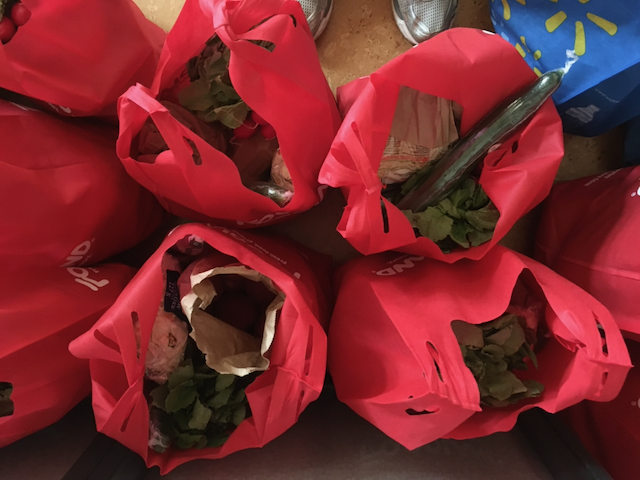
Food prices have been climbing for months now, but one initiative in New Brunswick is helping stock kitchens with fresh produce by harnessing the power of bulk purchasing.
Community Food Smart is a food security initiative taking place across the province, wherever local community partners have stepped up to become distribution points. Here in Sackville, one such community partner is the Sackville Commons Coop on Lorne Street, where once a month, people pick up grocery bags full of produce for a set rate of $15.
CHMA spoke with organizer Cynthia Dyck and volunteer Alice Cotton to find out more:
“It’s like a bulk buying program where you’re getting your vegetables at cost,” says local organizer Cynthia Dyck. “It’s a collective of people working together to get big enough orders that we can get it directly from the producer.”
There are a number of Food Smart branches in the Tantramar area, including the Sackville Commons, the Mount Allison Students’ Union, the Dorchester Moving Forward Coop, The Church by the Lake, and the Port Elgin Regional School. All branches combine their orders each month, and one large bulk order for fresh fruits and veggies is placed with a distributor. Volunteers at each location then divide up the bounty into bags, and participants pick them up.
Volunteer and program participant Alice Cotton has been involved for the past couple of years, and says the volunteering is fun. “There’s weighing and portioning things, and then you go on this lineup and fill up these bags and it goes quite quickly,” she says. Cotton is also the friendly face you’ll see at the Sackville Commons on pick-up day, once a month.
At $15 each, the bags are a great value, says Cotton. “It’s a heavy bag. It’s got a lot of fruit and vegetables, usually in very good condition.” There are basics that often make it into the bags, says Cotton, such as potatoes, onions and carrots. “And you can always count on there being some different kinds of fruit, usually apples and oranges, sometimes bananas. And then there’s the occasional avocado or blueberries. Today it was radishes. So there’s always something different in the bag as well.”
Dyck says all the money collected each month goes towards the bulk purchase, and administrative costs are covered by an annual $10 membership fee. She says prospective members are able to do a “trail run” to test out the program.
“The main spirit is to have access to affordable, fresh produce. I feel like it’s particularly relevant today with the increase in prices, particularly when you go into the grocery store,” says Dyck.
To get more information or find a distribution partner closest to you, email foodtantramar@gmail.com.
